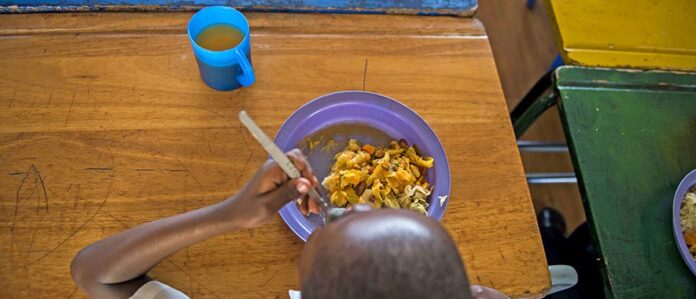Financial services group Sanlam is urging corporations to join forces in addressing the ongoing food shortage crisis in KwaZulu-Natal and the Eastern Cape.
The collapse of the public school feeding schemes in these provinces has left numerous learners without sufficient nutrition, prompting Sanlam to spring into action.
In a statement on Tuesday, Sanlam announced a donation of R1.5-million to the Lunchbox Fund, a service provider for the Sanlam Foundation Education Programme.
The contribution is expected to provide 310 000 meals to affected schools between May and July.
Sanlam contends that the impact of nutrition on student learning is significant, with productivity and concentration being key factors affected.
Karl Socikwa, group executive of market development at Sanlam, emphasized that the current situation extends beyond a mere food shortage crisis. He believes it has profound implications for entire households and communities.
Socikwa stated that the burden falls heavily on caregivers who are already facing financial strain, and it poses an additional obstacle to childhood education and development, leading to negative consequences.
“It impacts entire households and communities. It places added pressure on caregivers who already find themselves financially strained, and it’s an additional barrier to childhood education and development, which has a detrimental knock-on effect,” said Socikwa.
“Poor education hinders a child’s ability to generate future income and exacerbates our nation’s already high unemployment rate. It would be inaccurate to label this a food shortage crisis when, in fact, we are facing a humanitarian crisis.”
He emphasized the need for swift and collective action from corporations.
Referring to the Thrive by Five Index report, he highlighted that one in 18 children in South Africa exhibit signs of long-term malnutrition, necessitating a rapid and united response from the corporate sector.
“The Thrive by Five Index report found that one in 18 children show signs of long-term malnutrition in South Africa, and we require a rapid and collective response to the situation from corporations in our country.
“If our children are starved and vulnerable, our future economic sustainability is threatened. It is our responsibility to come to the aid of these learners.
“We at Sanlam call on our fellow corporates to join us, so together we can build a financially confident and resilient population on the African continent,” he added.
Follow @SundayWorldZA on Twitter and @sundayworldza on Instagram, or like our Facebook Page, Sunday World, by clicking here for the latest breaking news in South Africa.



